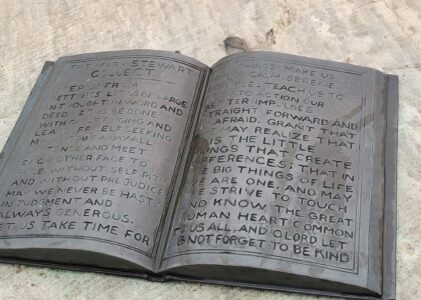The worst lies are the lies we tell ourselves. Richard Bach
Oh my gosh. How can I say you tell lies to yourself? I can say that because it is 100% true. We all lie to ourselves because lies are often easier to live with than the truth. We will not accept lies from others. We will accept lies we tell ourselves all the time. When we live in a lie, we must tell another lie to uphold the original lie. And then another lie, and another lie and another lie. We lose sight of who we are. When we live our authentic true selves, we are happier, and healthier. We can love on others without losing sight of who we are. Love lives in the truth. Love dies in a lie.
We tell ourselves lies because we do not like something about ourselves and we try to cover it up with a lie such as, “it is not that bad.” Have you ever injured yourself and told someone you are fine when you know you are not fine? You have lied to the person who asked and to yourself. If you hurt, you need help. Telling someone you are fine is a sure-fire way to not get the help you need. Why would you do that?
We lie to ourselves because it is comfortable. We do not have to face the hard truth.
We lie to ourselves because it is convenient. We can keep doing the same thing without having to change anything.
We lie to ourselves because it makes us feel better. Lying preserves our self-esteem.
We lie to ourselves to avoid responsibility for our actions.
We tell ourselves lies to cover up the mental conflict that occurs when our beliefs do not line up with our actions. This is known as cognitive dissonance. “Leon Festinger’s cognitive dissonance theory suggests that we have an inner drive to hold all our attitudes and beliefs in harmony and avoid disharmony (or dissonance)”. To maintain harmony, we tell ourselves a lie. Until we live in the truth of who we are, and our actions line up with that we cannot be free to be who we are.
How do you know you are lying to yourself?
Lying to yourself can show up with physical symptoms such as stress, anxiety, digestive issues, and pain. The physical symptoms are messages, and you should pay attention. For example, you have a friend that calls you regularly to vent and complain. When you see her number on your phone you get a sick feeling in the pit of your stomach. You know you do not want to talk to her. You know she drains your energy. You know she is not interested in what is happening in your life. You know you will be awake for hours after the call trying to figure out ways to help her. But you tell yourself she needs someone and that someone is you. The sick feeling in the pit of your stomach is telling you something different than the rationalization you have made in your mind. The rationalization is a lie. Your gut knows the truth. It is better for your mental health not to answer the call and let it go to voicemail. Imagine what you could do with the extra hour or two. You could rest, prepare lunch for tomorrow, finish your laundry or finish reading the book you would normally put down when you answer her call. The truth of the matter is your friend will move on to someone else when you stop being at her disposal. She is not interested in you. She wants someone to listen so she can vent. It really does not matter if that someone is you.
When you lie to yourself you are running away from something. It is difficult to admit, however, that sensation to flee is you running from the truth. What are you trying to escape from? A thought? A realization? A harsh truth? There is something just outside our reach, in the dark and you do not like it. You distract yourself and you do not know why. You must escape, but you do not know why.
Lies show up when you justify someone else’s behaviour. This is common in the abused woman. We tell ourselves we deserved to be hit. We tell ourselves that “he’s just blowing off steam.” We tell ourselves it will change. We tell ourselves we just need to do x y z and it will not happen again. Justifying their behaviour is easier than facing the truth and making the tough decisions.
Lies show up when you justify your own behaviour. You lie when you tell yourself “I am just feeling a little stressed” or “I have no other options.” These lies are very deceptive. It allows you to believe that you have good reason. You are making excuses and being consciously oblivious.
Have you ever experienced having a rigid attitude? Do others consider you to be narrow-minded? Do you play the blame game? Must you always be right? If you answered yes to any of these questions you are a victim of lying to yourself. Engaging in any of these behaviours hides a tremendous amount of fear. You live in an altered reality.
Have you ever felt inauthentic? Have you ever wondered if they found out who you really are they would not like you? Do you feel fake? The truth is you have lost touch with who you really are. You go places you do not want to go. You make friends with people you do not like. You buy things you cannot afford. You laugh when a joke is not funny. You are spending more time pleasing others than doing what brings you pleasure. This is inauthentic living and a lie.
You are believing a lie when you say any of the following to yourself.
- Everything is going to be okay. (There are times everything is not going to be okay.)
- Their success is my failure. (It is their success. You are still working on yours. Celebrate their success.)
- I will be happy when… (when is a person place or thing. When they happen in your life the bliss does not last, and you are on to the next I will be happy when…)
- If I am not busy, I am not working hard enough. (This is pure B.S. Busy distracts us from the things that really matter.)
- I do not have enough time for that. (We always make time for what is important to us.)
- I am a bad person if I say no. (Saying no does not make you bad or good. Saying no is respecting your boundaries and taking care of yourself.)
- Everyone else has it all together. (You have no way of knowing what others are going through. We can all put on a good front and be dying inside.)
- If I fix this one thing, life will be good. (This is like I will be happy when. When never comes and stays for the rest of your life.)
- It does not matter. (If you are saying it does matter. You are trying to convince yourself otherwise.)
- They will forget about it. (They may forget what you did. People never forget the way you make them feel.)
- Love goes both ways. (This is a fairy tale, a story. Love is sacrificial. You are blessed if love is flowing in both directions. It is not a law.)
- I am setting myself up for disappointment. (Henry Ford said, if you say you can or you say can’t, you are right. The way you talk to yourself can be the difference between success and failure.)
- If I do that people will expect more of me. (People will only expect as much as you are willing to give or convince them of. You determine how much of yourself to give away.)
- I am being selfish. (Selfishness is a tool for self care. Selfish is putting boundaries in place to protect your mental and physical health. Selfish is not bad. Everything can be extreme. When everything is always about me me me, yes, it is selfish. The best life is in relationship with others. Thinking only of yourself all the time is selfish and damaging to your relationships.)
Check in on our next blog post. We will be talking about replacing the lies with truth and living an authentic life. Until then, can you identify two lies you tell yourself on a regular basis? Can you discern what the truth is and stop telling yourself the lie?










